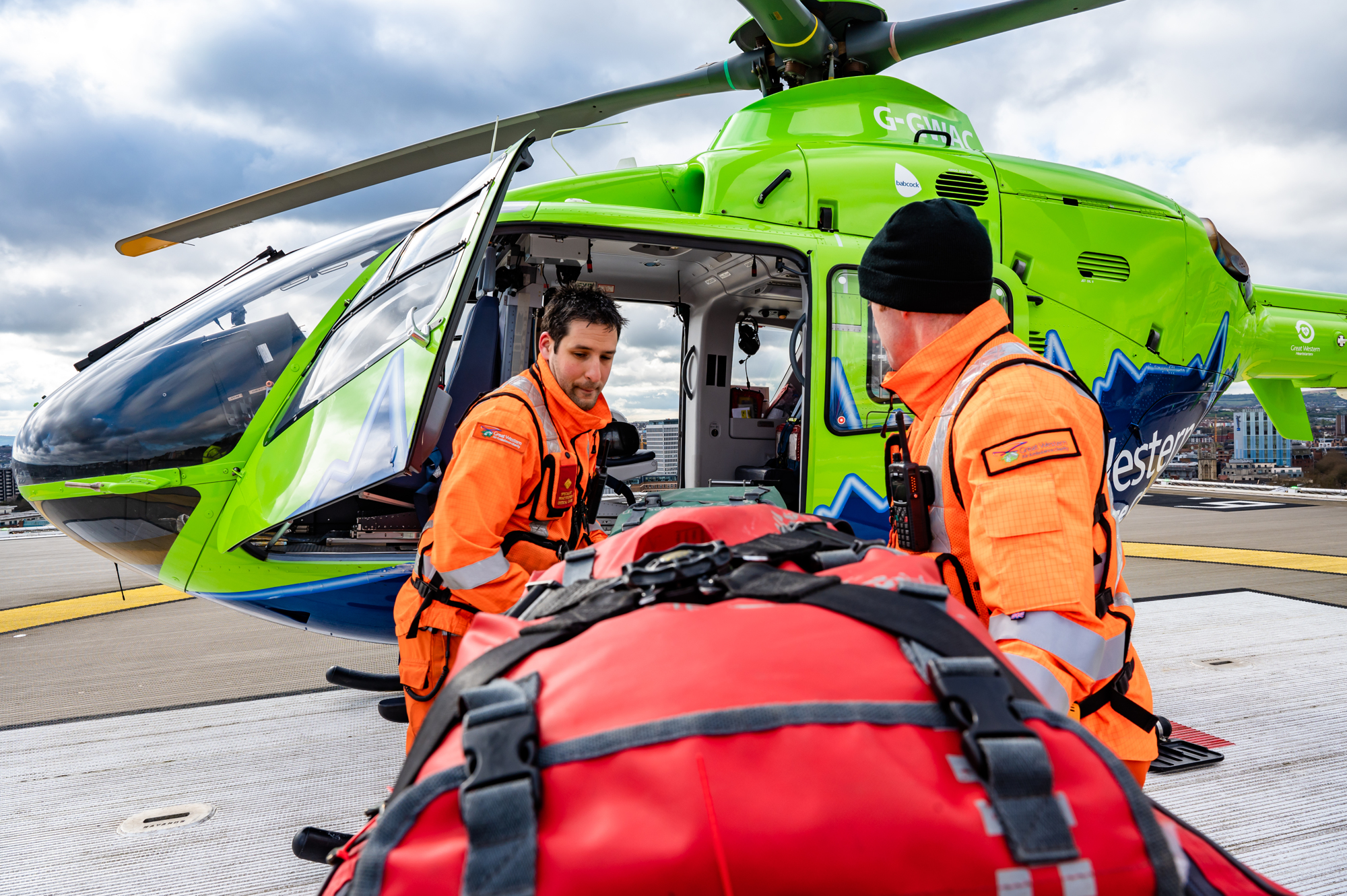
How our crew prepare for real-life situations
May 6, 2021
GWAAC’s Journey: How we grew to become one of the busiest Critical Care Teams in the region
May 7, 2021Great Western Air Ambulance Charity’s (GWAAC) Critical Care Team are called to the most serious and life-threatening emergencies across the region.
What they see and deal with on a daily basis is something most of us hope we never have to experience.
To protect their mental health and wellbeing, one of the things we have implemented here at GWAAC is a peer supervision scheme.
GWAAC’s new peer supervision scheme
Specialist Paramedic, Pete Reeve, has worked on setting up a new peer supervision scheme over the last year, after receiving some funding to initiate it. We catch up with Pete to talk about the importance of protecting our crew’s mental health and wellbeing, and the difference this is making here at GWAAC.
What is the new peer supervision scheme?
‘’Supervision is something that happens a lot in counselling and psychology backgrounds. When you’re dealing with things that can mess with your head quite significantly, it’s important to get a measure of how your work is affecting you.
Within the new supervision scheme, we look at three areas; normative, formative and restorative. Normative looks at professional standards, formative looks at development and restorative focuses on talking about your reactions to your work. We’ve been doing loads of work with the team about sharing emotions in the workplace because it’s something we can be better at. We are really good at talking about clinical things and developing, the thing we’re not very good at is talking about how our work affects us, and it’s really important. If we share emotions on a daily basis then it just becomes normal and then when someone is in crisis, they will find it easier to talk.’’
How has it made an impact?
‘’What we’re noticing now is that there are more conversations happening in the crew room that are more psychologically and emotionally savvy than before, we’re starting to talk about things we never used to – so it is helping to change the culture.
Another one of the things we introduced as part of the wellbeing strategy is ‘check in and check out’ on shifts. At the start of the day, each team member gives one or two sentences about where their head is at and then at the end of the shift we do the same. Ninety-nine percent of the time everyone is fine, but one percent of the time, someone will still be thinking about the last job, or a decision that was made and so once I get home that day, I’ll send that person a text message to check they’re okay.’’
Why is wellbeing so important for our crew?
‘’Wellbeing should underpin absolutely everything we do.
We find and recruit incredibly talented clinicians and then we put them through this process that we call work and when they come out the other end, if they’re broken we give them welfare. We’re using welfare like a splint or a plaster and we should be using it like PPE. It should be something you have before you go in so that you don’t break – that’s what we do for work. If you want to make sure you’re safe on a job, we have helmets, steel toe cap boots, gloves and masks, and if we injure ourselves we then go and get physio. The mental health side should be exactly the same, we give you stuff to protect yourself before you go in and if you get broken when you go in we have stuff to fix you when you come out but the chances of getting broken are so much smaller if you have self-awareness.’’



